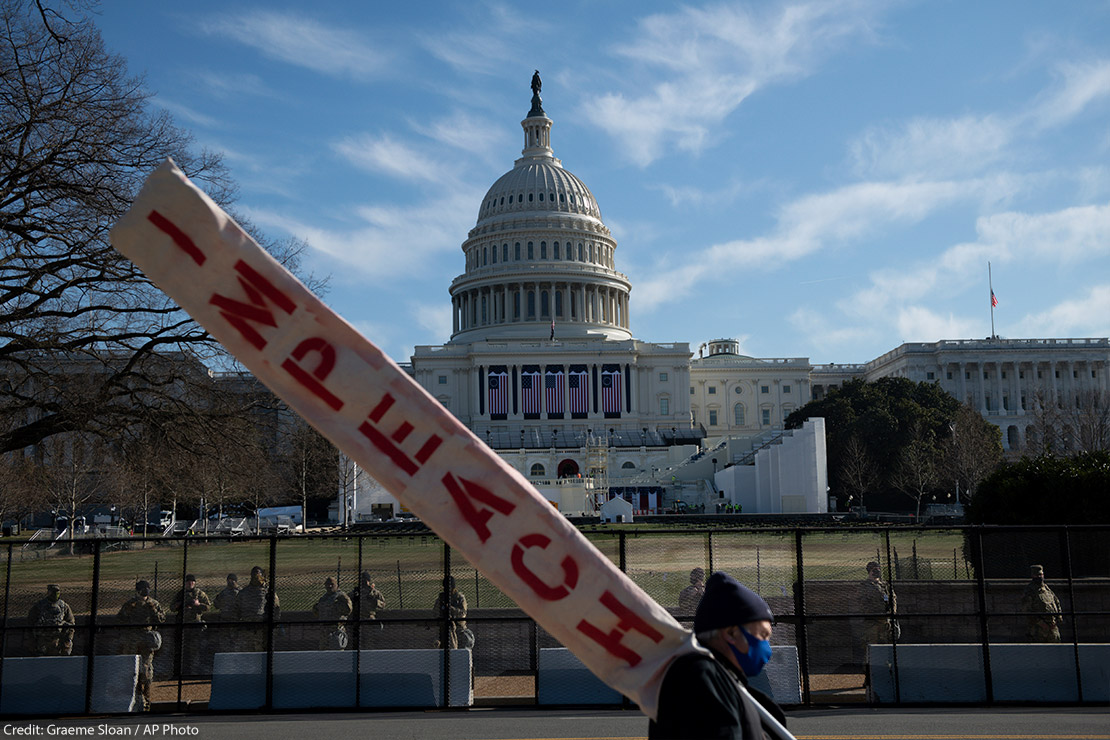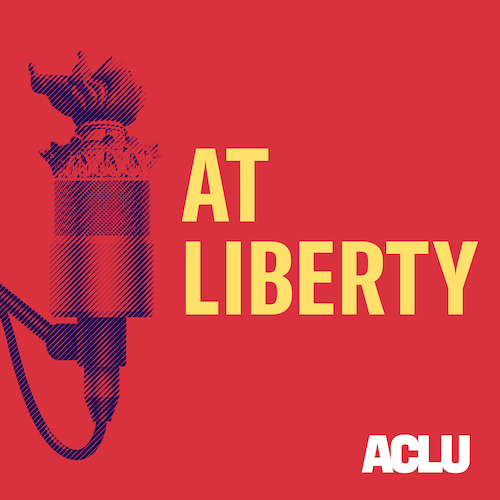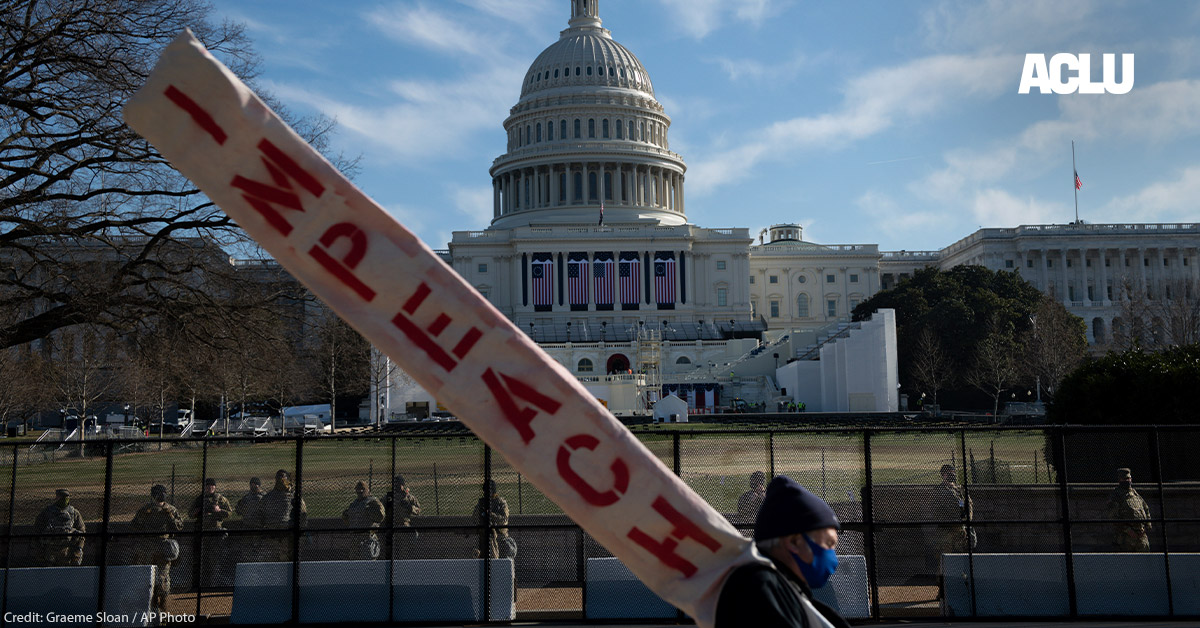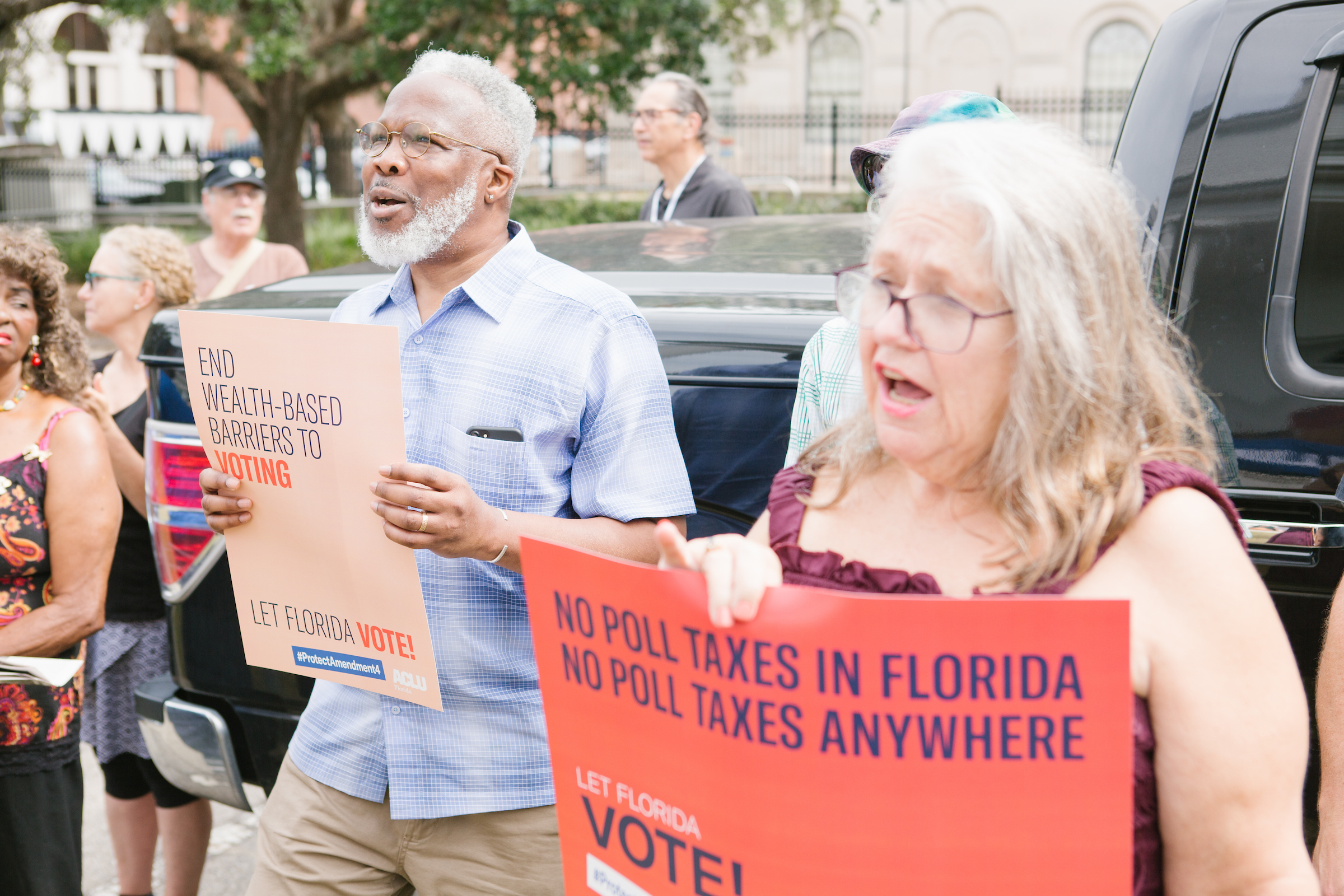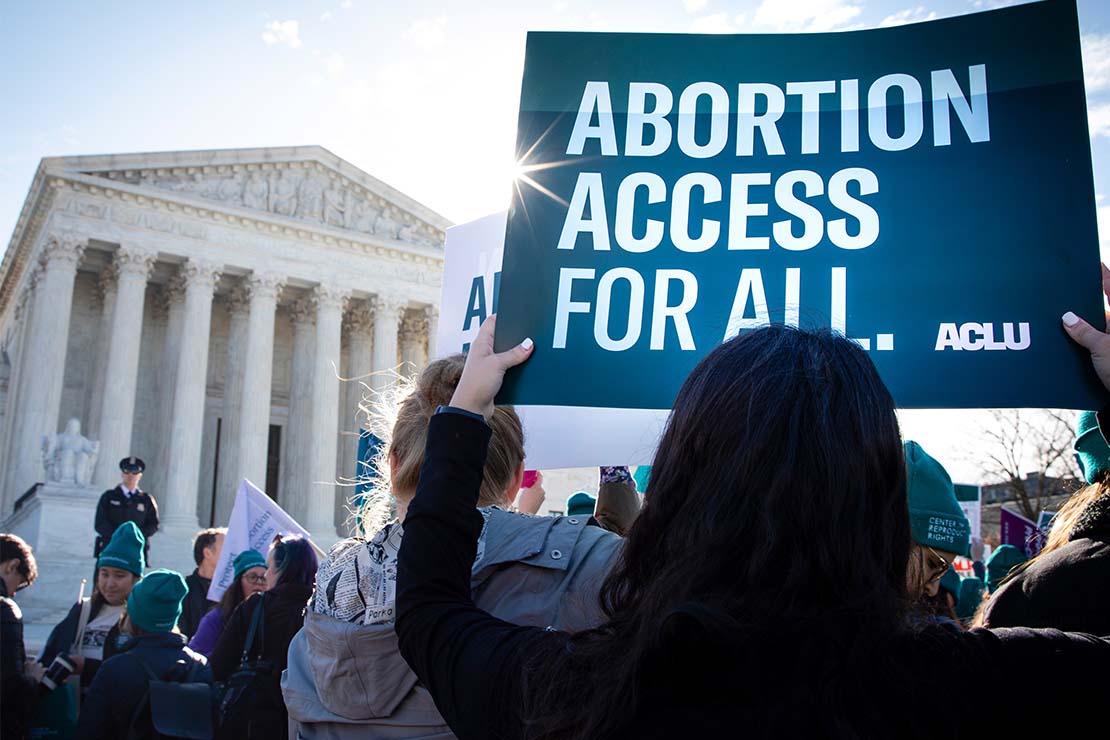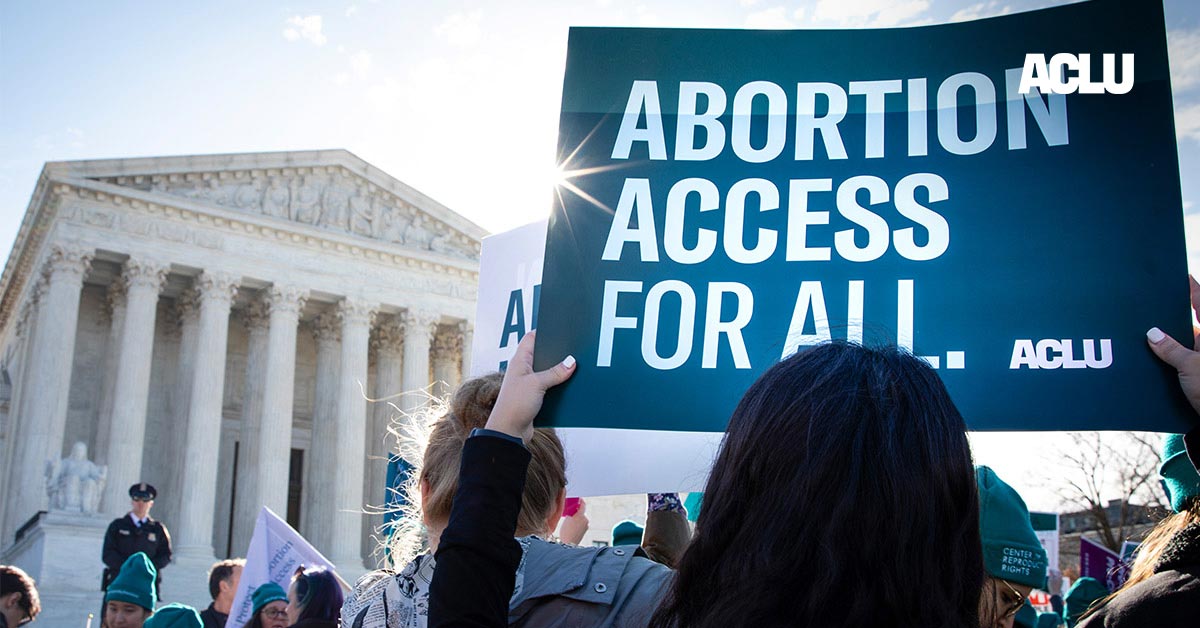The post was first published in Florida Phoenix.
Florida presents an ever-changing political landscape. One only needs to study Florida outcomes in general elections the past 20 years to confirm that.
What doesn’t change is the American Civil Liberties Union (ACLU) of Florida’s commitment to civil liberties, social justice and citizen participation in our state, despite shifting political winds. We don’t back candidates from any political party, ever. What we champion is the exercise of democracy and equality.
Despite opposition and obstructionism by state leaders — led by Gov. Ron DeSantis — Floridians embrace the ideal of building a Florida that works for everyone. They have demonstrated that many times but especially in 2018 when 65 percent of Florida voters approved Amendment 4, which restored the right to vote to some 1.4 million returning citizens.
The governor and his allies then undermined the will of the people by imposing a poll tax on those would-be voters. But knowing that Floridians are with us, and that we are on the right side of history, we will continue to champion civil rights and liberties. In the face of inaction and oppression from state leadership, our call will be, “We Make The Way.”
The ACLU of Florida is creating a movement that will protect and advance our civil rights for generations to come. To establish the groundwork for lasting change, our goal is to engage at least 2.2 million citizens to vote and advocate for our shared values. We are pursuing an aggressive, multifaceted, statewide strategy to activate this electorate, build long-term power, and create lasting impact.
This year we will work at the state level to advance equality and justice, but ACLU of Florida staff, volunteers and supporters will also increase our activism directly at the grassroots level. It is time to bring our state’s policies in line with the values of our communities.
We will continue to aggressively defend voting rights in 2021. In addition to advocating for the right to vote for returning citizens, we will push for expanded early voting days and hours so that as many Floridians who are eligible to vote can exercise their right at the ballot box. We will press all Florida counties to improve their signature matching methods so that perfectly valid vote-by-mail ballots are not rejected by local voting officials.
Florida’s immigrant population is vital to our economy and our culture, but in recent years Gov. DeSantis and other state leaders, promoting the virulent anti-immigrant rhetoric spewing from the White House, turned against immigrant communities.
The passage of Senate Bill 168 in 2019, which requires local law enforcement to act as U.S. Immigration and Customs Enforcement (ICE) agents and enforce detainer requests, has exacerbated a climate of fear and intimidation for immigrants in Florida.
In 2021, the ACLU of Florida will again push for the repeal of Gov. DeSantis’s SB 168 law as well as proactively seek to strengthen protections for immigrants at the local level. We will also continue to call for the repeal of other accords between local jurisdictions and federal immigration authorities that violate the rights of immigrants, such as 287(g) and Warrant Service Officer agreements.
The cry for criminal justice reform echoed nationwide in 2020. What was Gov. DeSantis’ response? He proposed legislation that at best criminalizes the First Amendment right to protest, and at worst, further perpetuates and institutionalizes white supremacy and violent policing.
His proposal is undemocratic and hostile to Americans’ shared values. Gov. DeSantis has one goal: to silence Floridians who want to see justice for Black lives lost to racialized violence and brutality at the hands of law enforcement. The ACLU will defend the constitutional right to protest of all Floridians.
We will also continue to push for criminal justice reforms in Florida, starting with an increase in rehabilitation credits, which will encourage incarcerated people to participate in educational, vocational and self-improvement courses that decrease recidivism, make our communities safer, reunite families, and save Florida taxpayers hundreds of million of dollars wasted on mass incarceration.
Bipartisan groups of elected officials in other states — including our neighbors in the South — have been making these reforms for years; Gov. DeSantis and Florida legislative leaders now have the opportunity to follow their lead.
The ACLU will also campaign to end mandatory minimum sentences and will press state attorneys to adopt sentencing reform. We will go to the courts to try to block the use of unaffordable bail and will campaign to end driver’s license suspensions for non-driving offenses.
We can create a Florida that is more just, more equal, and more free. To see the path toward justice, democracy, and equality in Florida, we must make our own way. We Make The Way — and we can do it together. “WE MAKE THE WAY” TOWARD A MORE FREE AND EQUAL FLORIDA.
Micah W. Kubic
